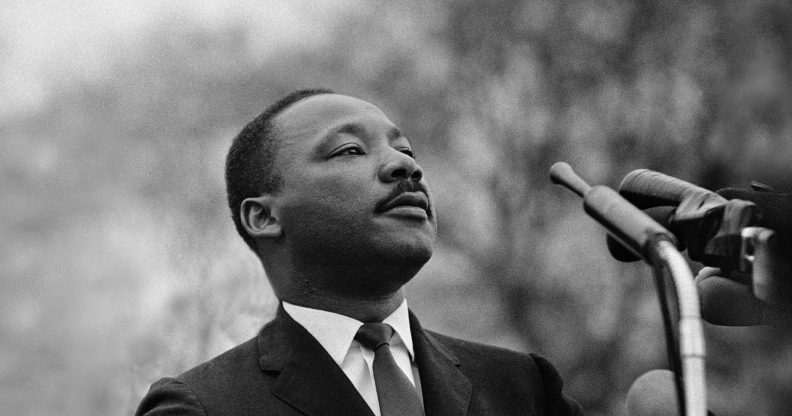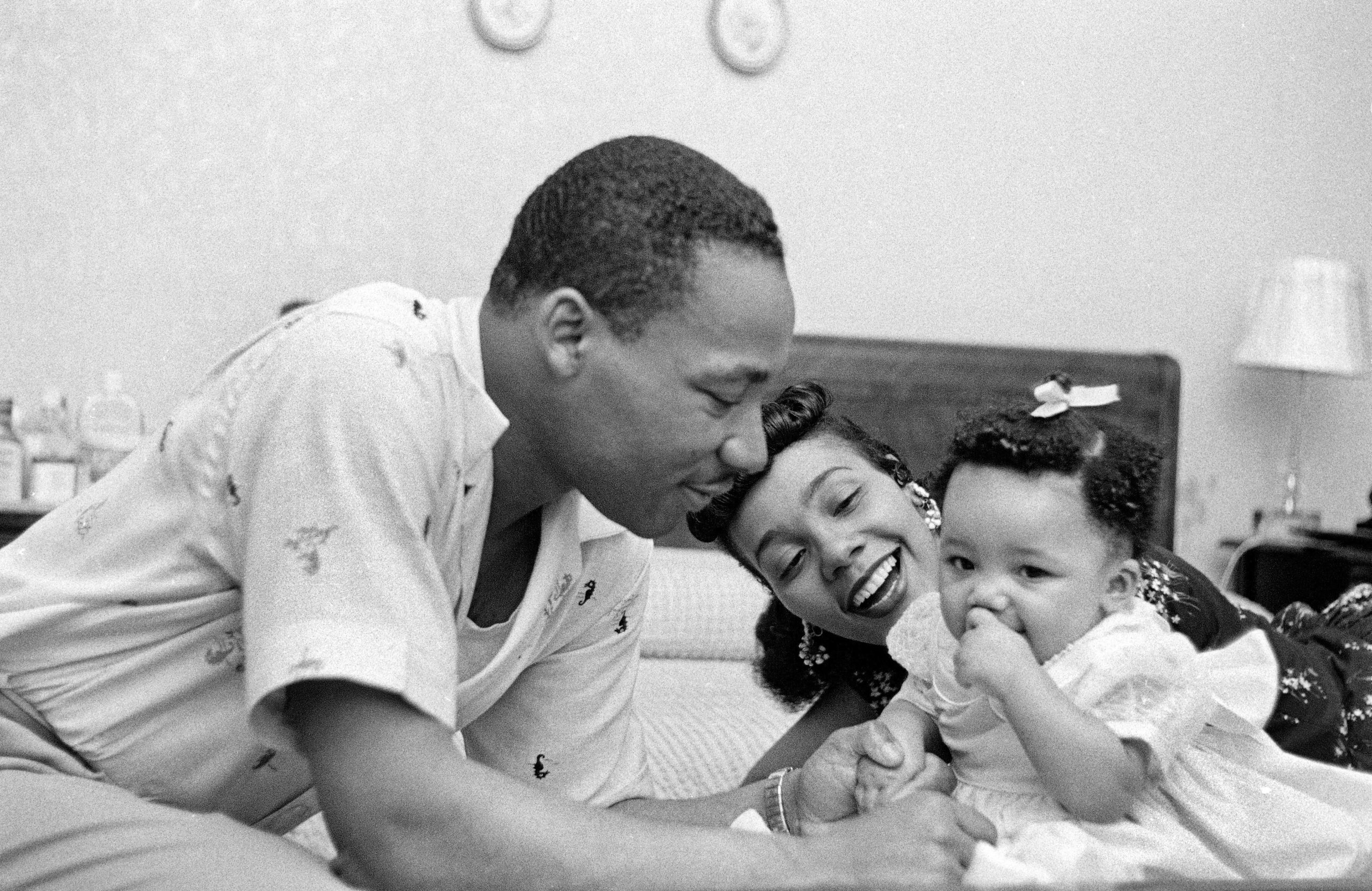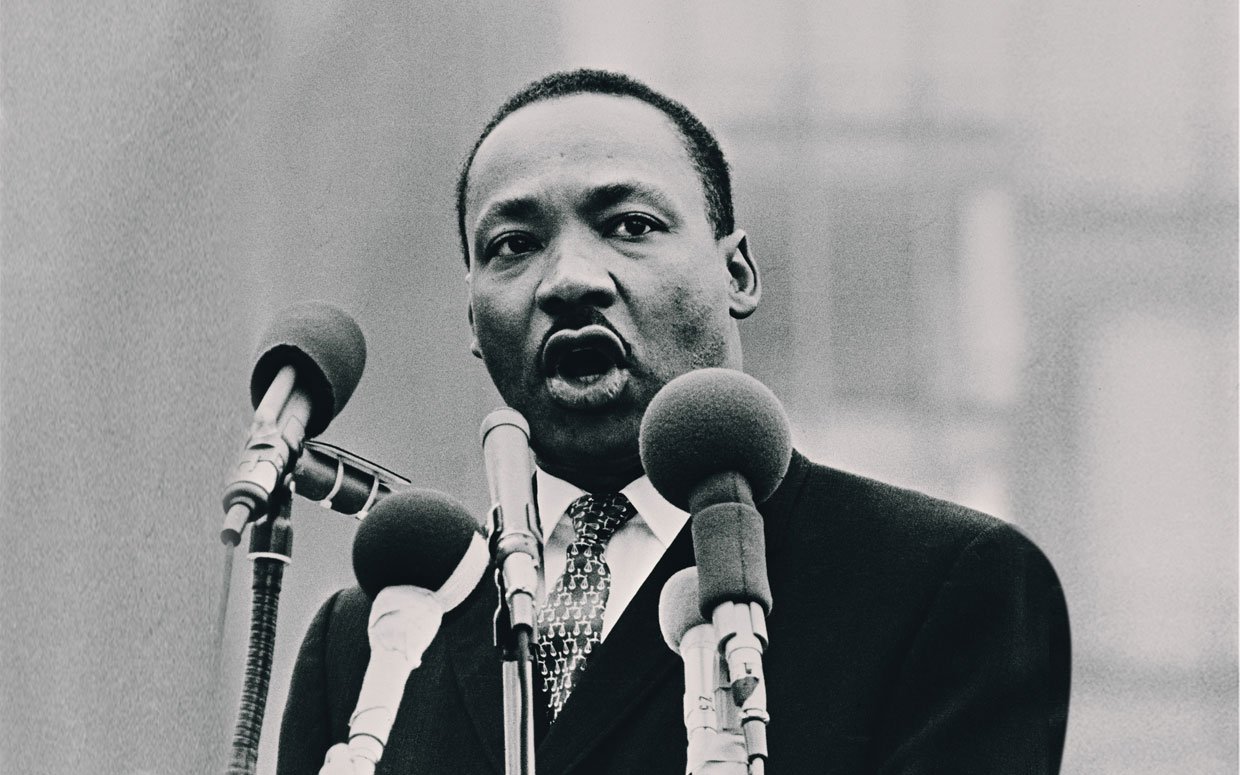Martin Luther King Jr’s advice to closeted gay teen in 1958 was unusually kind for its time

Martin Luther King Jr speaking before crowd of 25,000 on March 25, 1965 (Stephen F. Somerstein/Getty)
Martin Luther King Jr discussed homosexuality while answering a young man’s plea for advice in 1958.
In turbulent times it’s always tempting to look for words of wisdom from history’s great leaders. On Martin Luther King Jr Day, many will be wondering what the legendary activist would think of America if he were alive today.
No doubt there’s much he’d celebrate, but we imagine he’d also despair of the fact that racism still persists in almost every area of life: housing, employment, education, crime and incarceration, and experiences of police brutality.
This is especially true for queer Black people, who face increased discrimination. For some, this can be deadly – one need only look to the epidemic of anti-trans violence still gripping the US, which disproportionately impacts Black trans women, and is in part fuelled by anti-trans rhetoric from lawmakers across the country.
The government was openly discriminating against LGBTQ+ people when Luther King Jr was alive – no change there, then – and gay sex was criminalised in all but one state.
Despite this, the civil rights hero was able to speak to and about gay people with a level of patience and kindness that was unusual for his time.
He openly discussed homosexuality while writing an advice column for Ebony Magazine in 1958. According to a transcript released by Stanford University, an anonymous boy asked: “My problem is different from the ones most people have.
“I am a boy, but I feel about boys the way I ought to feel about girls. I don’t want my parents to know about me. What can I do? Is there any place where I can go for help?”
Dr King replied: “Your problem is not at all an uncommon one. However, it does require careful attention. The type of feeling that you have toward boys is probably not an innate tendency, but something that has been culturally acquired.
“Your reasons for adopting this habit have now been consciously suppressed or unconsciously repressed.
“Therefore, it is necessary to deal with this problem by getting back to some of the experiences and circumstances that lead to the habit.
“In order to do this I would suggest that you see a good psychiatrist who can assist you in bringing to the forefront of conscience all of those experiences and circumstances that lead to the habit.
“You are already on the right road toward a solution, since you honestly recognise the problem and have a desire to solve it.”
Though Dr King’s response would be troubling by modern standards, his advice to the boy is remarkably calm and polite given the fears and active scaremongering about gay people at the time.

Martin Luther King, Jr. at home with his wife Coretta and first child Yolanda in May 1956 in Montgomery, Alabama. (Michael Ochs Archives/Getty)
The civil rights activist was tragically assassinated in 1968, one year before the Stonewall riots birthed the gay rights movement – so we will never know his true feelings on the matter.
But Dr King’s wife Coretta Scott King carried on his work, and dedicated her life to fighting for LGBTQ+ rights alongside civil rights, believing that he would have done exactly the same.
As early as 1983, Mrs King was urging for gays and lesbians to be protected from discrimination and she remained ahead of her time until her death in 2006.
She backed same-sex marriage in 2004, declaring it a civil rights issue, before adding that her late husband would have also been in favour.
Mrs King told gay rights activists at the time: “I’m proud to stand with all of you, as your sister, in a great new American coalition for freedom and human rights.
“With this faith and this commitment we will create the beloved community of Martin Luther King Jr’s dream, where all people can live together in a spirit of trust and understanding, harmony, love and peace.”


